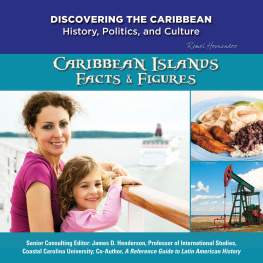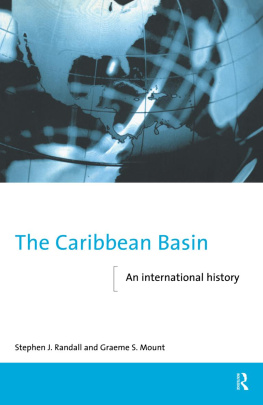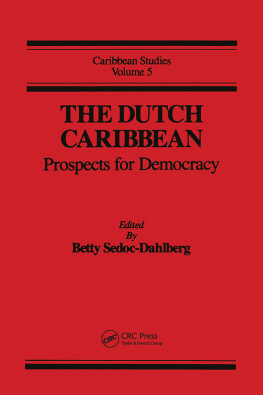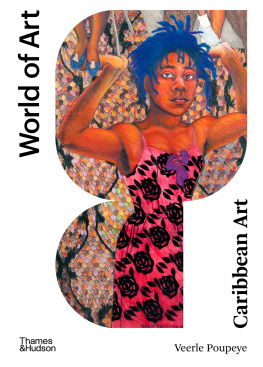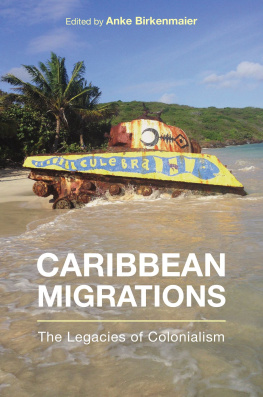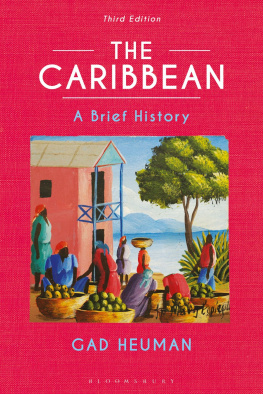Caribbean ethnicity revisited: Editors introduction
DOI: 10.4324/9781315025520-1
STEPHEN D. GLAZIER
University of Connecticut, Storrs, CT 06268, U.S.A.
Let us imagine two prisoners, in neighboring cells who communicate by means of taps on the wall. The wall is what separates them, but also what enables them to communicate. Every separation represents a bond.
Simone Weil
DAVID LOWENTHAL, in his introduction to West Indian Societies, seeks to dispel the myth of Caribbean racial harmony. The myth, he claims, was promoted by nineteenth-century travelers accounts, and on many islands it has been continued by Caribbean peoples themselves. The central problem, according to Lowenthal, is that many Caribbean peoples believe their own tourist and promotional literature, which touts the Caribbean as a paradise where a mixture of races lives in perfect harmony.
Many of my Trinidadian informants insisted that racialism does not play a part in their daily lives. Still, some informants were willing to admit that Caribbean race relations are far from ideal, but were quick to add that Trinidad race relations are much better than race relations in the United States. Like other West Indians, Trinidadians are prone to blame local occurrences of discrimination on outsiders especially Americans (cf. Lowenthal, 1972:18).1 When they travel to the United States, they expect to be treated badly and often are surprised when they are well received. However, a good reception does little to alter their beliefs concerning American racialism. Most conclude that their personal experiences in the United States were atypical.
As a group, social scientists seem to have come to a much more negative conclusion regarding Caribbean race relations than have Caribbean peoples themselves. Coleman Romalis (1976:423) notes that most sociological literature stresses the fragmented character of West Indian societies: racial and ethnic divisions that are deeply entrenched in the central economic and political institutions in the region. According to Romalis, Guyana, Trinidad, and Jamaica are riven by ethnic divisions, and in national and regional terms such fissures act as actual barriers to political coherence and social solidarity.
While there is substantial evidence to support Romaliss assertions, ethnic and racial differences are not always barriers to communication and may, like the walls in Simone Weils imagined prison, foster communication among various island groups.2 Ethnic stereotypes may provide a basis for interethnic cooperation. Ethnic separations are not only boundaries but bonds as well.
Unlike some American ethnic groups, which often exist in isolation from one another (e.g., Little Italy, the Puerto Rican sector, and so on), Caribbean ethnic groups are much more interdependent. On small islands even relatively closed groups such as the Chinese or the Jews cannot remain totally insular. If Black Trinidadians desire certain foodstuffs, they must deal with Chinese grocers. If Chinese grocers require dry goods, they must deal with East Indian merchants.
In some respects, ethnic differences can make communication easier between various groups. Individuals respond to one another in terms of stereotypes. Both parties know what to expect. Later, they may put these stereotypes aside and deal with one another as individuals or, when things become uncomfortable, retreat to stereotypic relations. This option is not readily available in the United States. Because Americans do not (officially) recognize ethnic differences, it is believed that each new acquaintance should be treated as an individual. We lack acceptable stereotypes and rules for interaction that could promote communication with different others and more often than not simply avoid dealing with them (this is exactly the situation described by Milton Gordon in Assimilation in American Life).
One hitherto understudied aspect of Caribbean societies is the peculiar interaction rules that characterize interethnic relations. The Caribbean needs its own Erving Goffman to continue the work begun by C.L.R. James and Naipaul. More particularly, greater attention should be given to symbolic and behavioral aspects of ethnicity because these factors are often as important as physical differences in making ethnic and racial distinctions.


